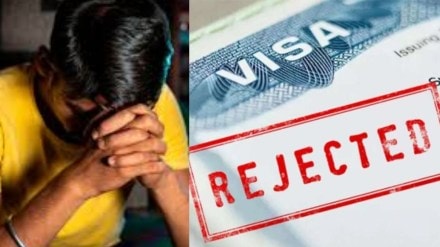Several Indian students have had their US student visa applications rejected following new social media screening rules, according to the Washington Post. The issue has raised concerns among applicants about freedom of expression and transparency in the visa process.
An Indian student, Kaushik Raj, 27, claimed that his visa was rejected by the US Embassy in New Delhi, likely due to his social media posts, which often focused on hate crimes and were critical of India’s treatment of its Muslim minority.
‘Scholarship in hand, visa denied’
Kaushik, who had secured a $100,000 scholarship to pursue a graduate degree in journalism at Columbia University, said he had passed every stage of the application process but still faced rejection. On August 21, Raj received a rejection letter that did not explicitly cite his social media activity but stated he had not “demonstrated sufficient ties to India that would compel him to return after his studies,” according to WSJ, which interviewed Raj and several other Indian students facing challenges in obtaining US visas.
Raj, who claimed he was not very active on social media but had spent four years working as a journalist, often included links to his work. He avoided expressing personal opinions on other controversial topics, such as the Israel-Gaza conflict, but was convinced that his online posts may have played a part. “It’s clearly because they have gone through my social media,” he said. “I will apply to the UK now.”
Three other Indian students interviewed by The Washington Post shared similar experiences. All had successfully completed every other stage of the visa application process, only to be rejected after social media vetting. “These students had lived in India their entire lives, yet were told they failed to prove ‘strong enough ties’,” the report said.
Nearly 30 percent of all international students in the US in 2023-2024 were from India, according to the Institute of International Education. What was once a hassle free process, has become a lengthy ordeal. Weeks or even months of “administrative processing” are now common and students applying for visa are required to share their online handles without realising what might be considered disqualifying.
For Raj, the US crackdown on speech feels similar to what he has experienced in his own country. “People go to the US because they’re troubled by what’s happening in their own countries,” he said. “But if you’re going to be censored there too, what’s the point?”
Social media posts under scrutiny
In March, immigration authorities began detaining and deporting foreign students who were critical of US foreign policy. Several students who had participated in pro-Palestine protests were deported. Among them were Indian students like Ranjani Srinivasan, a PhD student at Columbia, and Badar Khan Suri, a postdoctoral fellow at Georgetown University accused of spreading “Hamas propaganda,” WSJ reported.
“If they’re taking activities that are counter to our national interest or foreign policy, we’ll revoke the visa,” Secretary of State Marco Rubio said in March. “We are not going to be importing activists into the United States.”
By May, the US State Department had temporarily halted visa interviews, expanded vetting procedures were put in place. In June, a new policy required applicants to make all social media profiles public.
A 26-year-old PhD student at Louisiana State University said she has almost stopped posting online. “Anything can be considered grounds for getting deported or your visa canceled,” she said. Another Indian student admitted to North Carolina State University spent nearly $2,000, including application fees and trips to New Delhi, only to be rejected after social media vetting.
